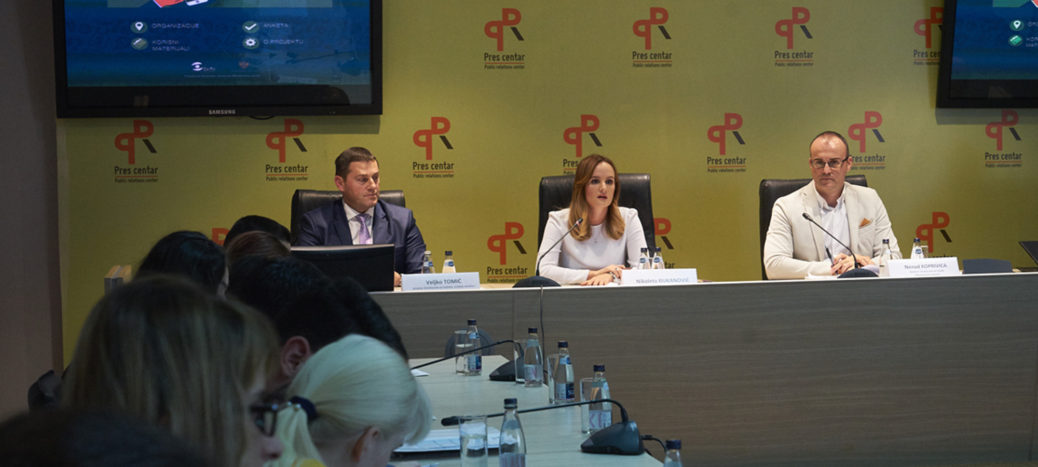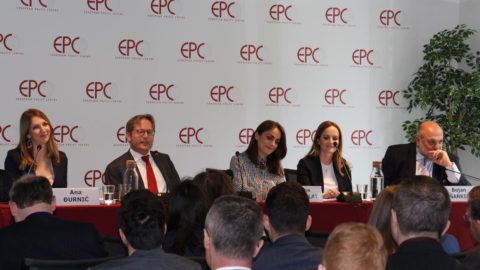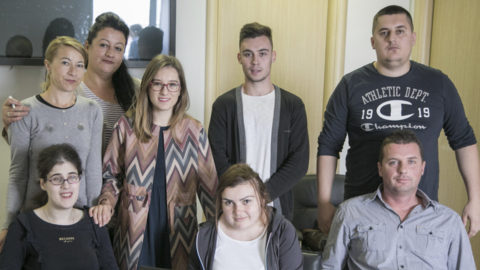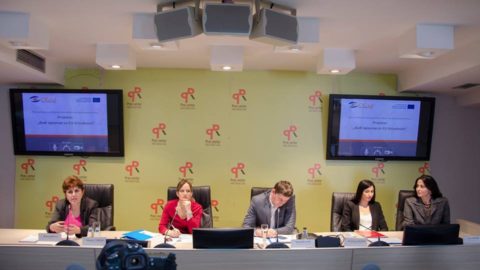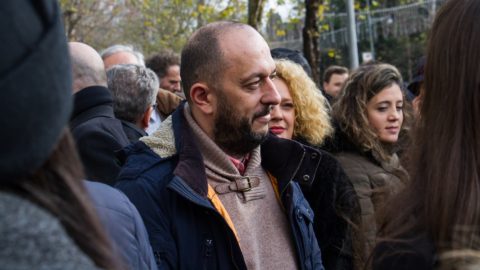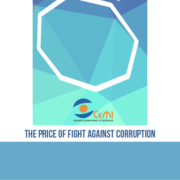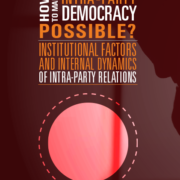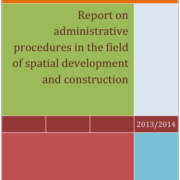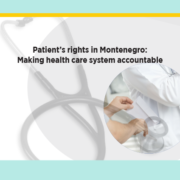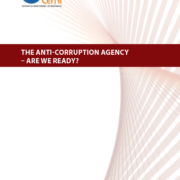The youth of Montenegro is not included enough in the decision-making process, formal education does not encourage their activism and peer education is a significant factor in making positive changes in society.
That was announced at the national conference on the youth, organized by the Centre for Monitoring and Research (CeMI), within the project “Smart Start – Active Youth for Sustainable Changes”, realized with the support of the Ministry of Sports.
Executive Director of CeMI, Nikoleta Djukanovic, said that one of the characteristics of the position of youth, especially the student population, is that there is an obvious gap between the possibility for acquiring education and economic opportunities.
“On the one hand, even though young people finish high school, they do not possess enough practical knowledge and skills necessary for performing certain jobs and so they have a harder time finding work. On the other hand, those that are successful continue their education on higher education institutions, which is why they leave their cities”, clarified Djukanovic.
The youth in Montenegro, as she pointed out, is not sufficiently included in the decision-making process and formal education does not encourage their activism “which does not encourage either the culture of participation or promoting youth as the initiator of the factor of changes”.
“The reasons for initiating this project are the facts that through the system of high school education, the youth does not have the chance to be adequately familiarized with the political system in Montenegro, they do not possess or possess only limited knowledge about the changes in the political system in the process of European integration, and that process of accession is complicated and foreign to them”, clarified Djukanovic.
The goal of this project was to, as she stated, train and motivate the young peer educators to transfer the knowledge they acquired about the political system in Montenegro and European integration, to their peers.
“The goal was for the young youth educators to familiarise the other high schoolers in all municipalities in Montenegro about the characteristics of the system they are living in, to positively influence their motivation, encouragement and education with the goal of actively participating in decision-making, recognizing problems of their population, suggesting sustainable solutions, exactly through forms of informal education”, said Djukanovic.
CeMI has, as she explained, developed the first mobile and web application dedicated to informing the youth about their rights in work relationships, existing platforms and possibilities of employment, perfecting, student exchange with the map of existing youth centres and student organizations.
Director of the Youth Directorate in the Ministry of Sports, Nenad Koprivica, said that the advancement of position of the youth is a process that largely depends on the opportunities and mechanisms created by responsible institutions, but on the hand, as he said, young people have to take those chances and be interested in advancing their position with concrete activities.
“In that sense, I think that the synergy of all factors and actors is important, so we could additionally advance the position of youth”, said Koprivica.
He pointed out that “Smart Start – Active Youth for Sustainable Changes”, is one of 86 projects that the Ministry of Sports supported in this year.
“In 2017 we supported 36 projects in the amount of 170 thousand euros, while in this year that amount has been tripled. So, we appropriated more than half a million euros for youth organizations’ projects”, clarified Koprivica.
According to his words, in cooperation with local self-government, numerous joint activities have been conducted and, as he stated, it was worked on sensitization of local self-government, so more time, room and resources would be dedicated the youth policy.
“In some municipalities, we have great results, while those results are lacking in other. But changes are already visible and in the next period I expect it to be even better”, said Koprivica.
He added that, besides the mechanism on the national and local level, mechanisms of strengthening the youth, offered on the regional and international level, are significantly important.
Koprivica announced that starting next year, the name of the Ministry will be changed to the Ministry of Sports and the Youth.
“In that way, we will formally confirm all that was essentially completed, which concerns youth policy”, said Koprivica.
Director-General of the Directorate for General Secondary, Secondary Vocational and Adult Education in the Ministry of Education, Veljko Tomic, pointed to the problem of peer violence and invited the peer educators to, through informal communication, raise awareness between friends.
“As much as we talk, from the position of minister, assistant etc. the communication realized between youth themselves is the one that reaches them first. In our secondary vocational school, peer violence has been present and everyone needs additional education”, said Tomic.
The key novelty in educational reform is, as he stated, the creation of good assumptions for the introduction of dual education in secondary vocational schools.
“With the dual education that we started the past 2017/2018, the results are already great. The idea is to, through the promotion of secondary vocational schools, overcoming prejudices of young people who finished primary school. Going to university is great, but the promotion of vocational education has the goal to show that even the best young people who finished primary school, enrol in vocational high schools and that therein lies the possibility of acquiring work faster”, said Tomic.
The Ministry of Education has, as he said, this year appropriated half a million euros to teachers, professors and the best students of primary and secondary schools.
“Around 500 awards will be formally given tomorrow in the Gymnasium in Podgorica and the key message is that we want to recognize the best professors and the best among you. That award does not mean much financially, but it does mean that for the first time in a systematic way, we have tried to say that the profession of the educational worker is one of the most important professions in every society”, said Tomic.
Coordinator of the Youth Program in NGO Juventas, Maja Markovic, pointed out that when it comes to the advancement of the position of youth in Montenegro, it needs to be considered that not all young people in the state are in the same position.
“If we are talking about the geographical division, the fact is that young people in Savnik do not have the same opportunities that young people in Podgorica or Tivat have. I do not mean only access to cultural and entertainment content but also education and access to health and social services”, clarified Markovic.
She pointed out that when we are talking about young people, we need to keep in mind specific categories which demand special and targeted action.
Markovic thinks that it is necessary to work on the motivation of young people to be included in some of the processes but also to work on the sensitization of adults to have in mind the needs of the youth.
“When it comes to youth participation, a mistake is often made and there is no difference between two types of participation. We have to know that exists participation of the youth in the sense of participating in decision-making, but participation also means participating in all social events and happenings. In that sense, the first one is much more demanding”, clarified Markovic.
She pointed out that most of the young people do not know ways in which they can influence decision-making, not even in their closest local environments.
Markovic said that young people think that it is important for formal education to recognize more the importance of informal education and for volunteer activities to be more valued.
“Today, we are in a situation in which young people consciously choose to participate in certain volunteer activities very often just so they could get recommendations for scholarships abroad. I think that is disastrous because volunteerism should not be a tool for achieving certain other goal but, first and foremost, should be a basic form of citizen action”, explained Markovic.
Coordinator of peer educators from NGO Prima, Jelena Jovanovic, thinks that informal education is very significant for both young people, local communities and the entire state.
“Informal education is not sufficiently affirmed in our country and I think that young people are not informed enough about the opportunities that informal education offers them. Informal education represents a great contribution to the formal way of education. It represents practical work, brings certain knowledge, skills and competencies necessary for the youth to enter the job market and be competitive later”, explained Jovanovic.
Peer education is, as she clarified, recognized as an effective and efficient method for informal youth education.
“Young people are, through peer education, readier to acquire knowledge, ask what interest them and readier to pass on that knowledge”, said Jovanovic.
General Secretary of the High School Students Union of Montenegro, Jovan Bojovic, explained that peer education is an important factor in bringing positive changes in society.
“The needs of young people are very often changing and growing and with that, the risks that they are facing are also increasing. We have to find the most efficient way to get in contact with the youth so as to ensure a better life in a healthier and safer environment for them”, pointed out Bojovic.
Peer education, as he explained, represents one of the bases for solving any sort of risk and problems that young people face.
Peer educator and student of the Secondary construction-geodetic school “Engineer Marko Radevic” in Podgorica, Anastasija Filipovic, said that young people need to participate more actively in any form of activism so as to, as she stated, contribute to the decision-making of importance for the youth.
“I am pretty satisfied with the interest showed by students, they were exceptionally active and productive with their suggestions. A lot of students plan to enrol in universities outside of Montenegro and it is very important to acquire new experiences, skills and knowledge and be active members of society as well”, said Filipovic.
Peer educator and student of “Slobodan Skerovic” Gymnasium in Podgorica, Djordje Borozan, said that peer education is gaining more significance in society in which technology takes primacy and changes the way of learning.
“I think that this type of education is important and needs to be constant. Its main advantage is openness towards the peer educator. It is completely natural for young people to have more liberty to express their attitudes in front of someone of their age, than in front of professors and parents”, stated Borozan.
Peer educator and student of “Panto Malisic” Gymnasium in Berane, Luka Novovic, said that peer educators, during workshops, strived to establish the problems of the youth and their solutions.
“In Berane the problem of corruption has been recognized, in Andrijevica employment and workplace deficit, in Rozaje and Petnjica employment and stay in Montenegro after finishing school and Gusinje the biggest problem was emigration. Alarming information is that out of 24 high school students in Gusinje, 14 of them left Gusinje and moved to the USA”, stated Novovic.
Peer educator and student of the Secondary Economic and Catering School in Bar, Milica Pavlovic, said that the summer school that CeMI organized changed her perspective about the future.
“I realized how to improve my skills and through the summer school, I learned how to fight for myself and find my way in society. Also, I learned how to transfer the knowledge, which I take in every day, to others”, said Pavlovic.
Peer educator and student of the “Cetinje” Gymnasium at Cetinje, Masa Tomic, said that during the summer school she got to know ambitious young people, evaluating the topics discussed as innovative.
“The summer school motivated me to intensively engage in activism and explore the NGO sector, after which I started going to other seminars. Besides that, I got to know other young people who want to bring changes and through our discussions, we reached optimal solutions”, stated Tomic.













 Montenegrin
Montenegrin